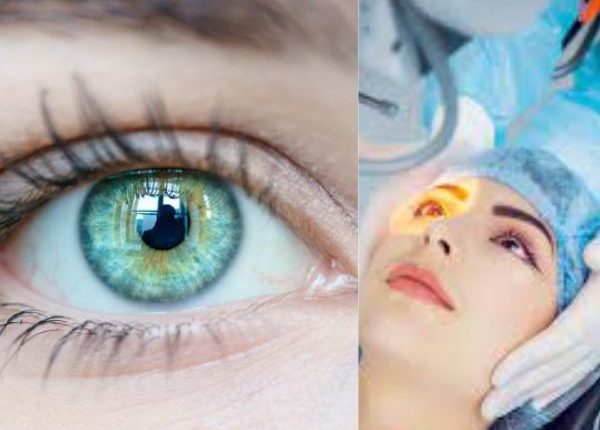How Long After Cataract Surgery Can You Drive? -Cataract surgery is a common procedure that can help improve your vision and quality of life. However, after the surgery, you may have some restrictions on your activities, including driving. Driving requires good vision and reaction time, and after cataract surgery, your vision may not be as sharp as it used to be. Therefore, it’s important to understand how long you need to wait before getting behind the wheel again and what precautions you should take to ensure safe driving after surgery.
How Long After Cataract Surgery Can You Drive?
After cataract surgery, you should not drive for at least 24 hours, which is a day or if you are still not fit you can extend to 2 days. This is because the eye drops used during the surgery can cause temporary blurring of vision and increased sensitivity to light. It’s important to follow your surgeon’s instructions regarding driving, as your vision may take longer to recover depending on the type of surgery and your individual healing process. In general, most people can resume driving after one to two weeks, but this may vary based on your age, overall health, and the extent of your cataract surgery.
Also read | Sicca syndrome causes, diagnosis, risk factors, treatment, and medication
Precautions to Take Before Driving After Cataract Surgery
Before getting behind the wheel after cataract surgery, you should take the following precautions to ensure safe driving:
- Follow your surgeon’s instructions regarding when you can resume driving.
- Make sure your vision meets the legal driving requirements in your state or country.
- Avoid driving at night or in low-light conditions until your vision has fully recovered.
- Wear sunglasses to protect your eyes from glare and bright light.
- Avoid driving in heavy traffic or during rush hour until you feel comfortable and confident with your vision.
Some Facts to Know
Let’s look at some necessary facts about this condition.
Pre-operation Preparation
Before you undergo cataract surgery, your eye surgeon will review your medical history and conduct a thorough eye exam. Be sure to tell your surgeon about any health conditions you have and any medications you are taking, as these may affect the surgery.
You will also need to stop wearing contact lenses or glasses for at least two weeks before the surgery. This is because contact lenses can change the shape of your cornea, which can interfere with the accuracy of the surgery. If you wear glasses, your surgeon will need to measure your eyes without them in order to get an accurate measurement for the implants.
Finally, you will need to arrange for someone to drive you home after the surgery, as your vision will be blurred and it is not safe to drive yourself.
What to Expect During Surgery
Most people can go home the same day as their surgery. You will need someone to drive you, as your vision will be blurry. It is common to have some discomfort in your eye for a day or two after surgery. Your doctor will give you eyedrops to help with this. It is also common to have some bruising around your eye, which should go away within a week or so.
Don’t miss | Heat rash in babies home remedy
Post Operative Care and Recovery
After cataract surgery, it is important to take care of yourself and give your eyes time to recover. Here are some tips for post-operative care and recovery:
Rest your eyes as much as possible for the first few days after surgery. This means avoiding activities that require a lot of visual activity, such as reading, watching television, and using computers or phones.
Apply eye drops as prescribed by your doctor. These eye drops help to reduce inflammation and pain.
Wear sunglasses when you go outside. This will help to protect your eyes from the sun and wind.
Avoid rubbing or touching your eyes. This can cause irritation and increase the risk of infection.
Following these tips will help you to recover quickly and safely after cataract surgery.
Vision Tests Before Driving
There are two main types of vision tests that may be required before driving: the Snellen eye chart test and the Amsler grid test.
The Snellen eye chart test measures how well you see at different distances. For this test, you will stand 20 feet away from the chart and read the letters aloud. If you can read the bottom line on the chart, you have 20/20 vision. If you can only read the top line, your vision is considered 20/100.
The Amsler grid test is used to check for central vision loss. For this test, you will look at a square grid with small dots in the middle. If you see any wavy lines or blank spots in the grid, it may be an indication of central vision loss.
If you have any concerns about your vision, it is always best to consult with your eye doctor before getting behind the wheel.
Tips for Safe Driving After Cataract Surgery
Your vision will be most clear about two weeks after surgery, so you may want to wait until then to get behind the wheel.
Make sure to wear your glasses or contact lenses as directed by your doctor.
Take extra care when driving at night or in low light conditions.
If you experience any vision problems while driving, pull over and rest until your vision clears.
Also read | Impact of Maternal Health on Baby Appearance
Alternatives to Driving After Surgery
Public transportation, such as buses or trains, can be a good option if you’re unable to drive. You can also ask a friend or family member to drive you around for a few days until your vision improves. If you live close to your doctor’s office, you may be able to walk or ride a bike there for follow-up appointments.
Common Questions About Driving After Cataract Surgery
Q: Can I drive myself home after cataract surgery? A: No, you should arrange for someone to drive you home after the surgery, as your vision may be temporarily blurred and you may not be able to see clearly.
Q: How long after cataract surgery can I resume driving? A: You should wait at least 24 hours after cataract surgery before driving, and then follow your surgeon’s instructions regarding when you can resume driving.
Q: Will my vision be blurry after cataract surgery? A: Your vision may be blurry or hazy for a few days after surgery, but it should gradually improve as your eye heals.
Conclusion
Driving after cataract surgery requires caution and patience. You should wait at least 24 hours before driving and follow your surgeon’s instructions regarding when you can resume driving. It’s also important to take precautions, such as wearing sunglasses and avoiding driving in low-light conditions, until your vision has fully recovered. By taking these steps, you can ensure safe driving after cataract surgery and continue to enjoy the benefits of improved vision. Source
Also read | Unpacking the Electra Complex: A Comprehensive Guide to Understanding Psychology









